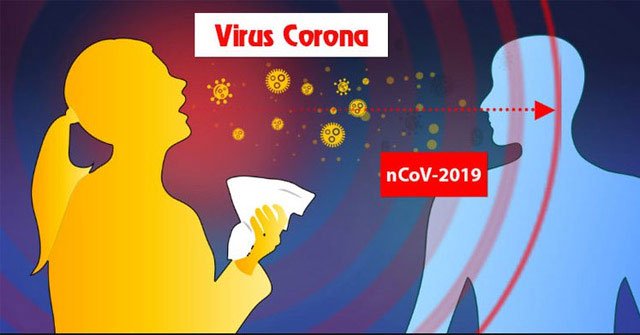What is cross-infection?
Cross-infection is the transmission of harmful microorganisms (usually bacteria and viruses) between people, from equipment to people or can occur inside the body.

Cross-contamination may occur due to: bacteria, fungi, parasites, viruses.
These microorganisms spread through:
- The ill person coughs and sneezes.
- Direct contact between people.
- Touch the infected surface.
- Medical equipment has not been sterilized.
- Bed is not clean.
- Use catheters or wires for a long time.
Places where cross contamination may occur
Cross-contamination can occur anywhere, from houses, schools, banks . to public buildings.
Measures to prevent cross-contamination
- Restrict the use of public transport to not go to a crowded place. Wear a mask if you must go out.
- Wash your hands often with soap and water or with an alcohol-based hand sanitizer to kill viruses if your hands have the virus.
- Maintain a distance of at least 1 meter between you and others, especially those who have symptoms of coughing, sneezing and fever because the virus can shoot out when they cough or sneeze and you can breathe in those viruses if too close.
- Avoid touching your eyes, nose and mouth with your hands because your hands can touch surfaces that could be contaminated with the virus. If infected hands touch your eyes, nose or mouth, you can spread the virus from the infected surface to yourself.
- If you have a fever, cough and trouble breathing, wear a mask, isolate yourself in a private room and call the hotline of your local health department or the Ministry of Health (1900 3228 or 1900 9095) to advice.
What is community immunity? Does it apply to Covid-19?
What is a vaccine (vaccine)? Why is the vaccine not used to treat illness but to prevent it?
Read more :
More Science Stories
- 4 patients sharing a room will increase the chance of infection for each other by 20%
- Sitting cross-legged - Causes of many diseases
- The first cross-kidney transplant in Vietnam was successful
- Signs of staph infection anyone should not be ignored
- China built the longest cross-sea bridge in the world
- How to prevent flu infection on aircraft
- Gold pendant shaped the oldest Jesus in Denmark
- The unexpected harm of the habit of sitting cross-legged
- Artificial nose helps to find blood infection bacteria
- Strange frogs turn themselves into magnets ... suck bait
- Birds cross the road
- What is salmonellosis?
 13 causes of non-itchy rash
13 causes of non-itchy rash How the mouse with human ears changed the world?
How the mouse with human ears changed the world? The truth about 'fried rice syndrome!
The truth about 'fried rice syndrome! What is dental implant?
What is dental implant? Washing hands with soap but not killing bacteria, the simple reason is this
Washing hands with soap but not killing bacteria, the simple reason is this  Why is touching the face the easiest way to turn yourself into a virus victim?
Why is touching the face the easiest way to turn yourself into a virus victim?  Prevention of nCoV: Is hand sanitizer better than washing hands with soap under running water?
Prevention of nCoV: Is hand sanitizer better than washing hands with soap under running water?  Wuhan virus prevention: Dr. Pham Nguyen Quy pointed out the harmful effects when sneezing covering his nose and mouth with his hands
Wuhan virus prevention: Dr. Pham Nguyen Quy pointed out the harmful effects when sneezing covering his nose and mouth with his hands  Why do we need to wash our hands before eating? This experiment will tell you that!
Why do we need to wash our hands before eating? This experiment will tell you that!  Missing these items should wash your hands immediately to prevent the risk of bacterial infection
Missing these items should wash your hands immediately to prevent the risk of bacterial infection 